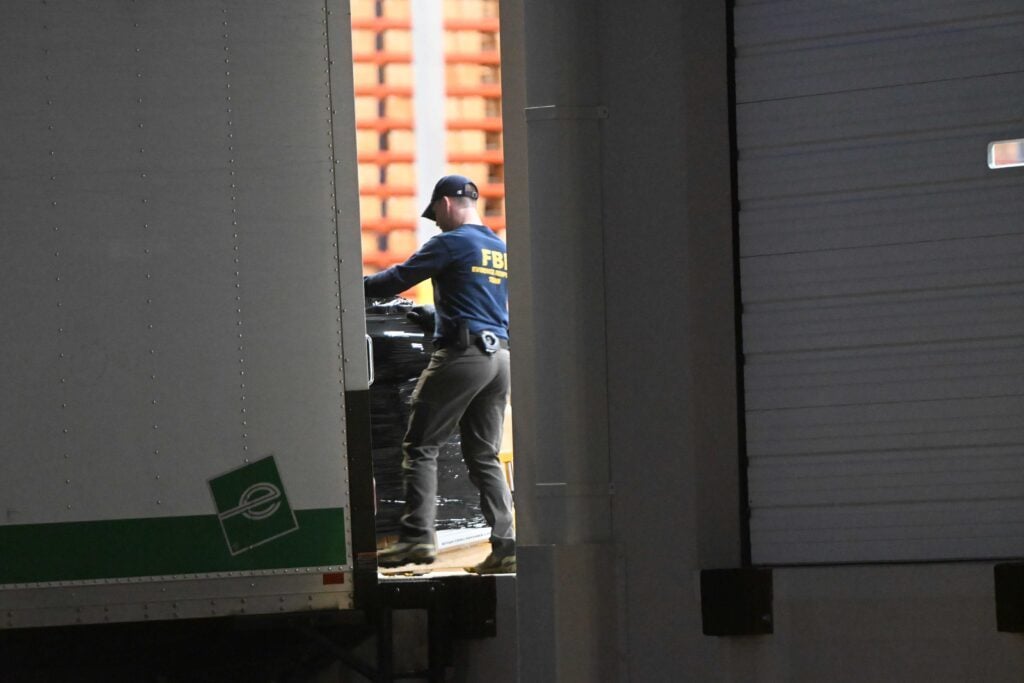Battle Hymns

In the entertainment world, it’s easy to spot cut-rate opportunism. Factually bankrupt cash-in biographies appear whenever a TV show strikes a chord with teen-age pin-up piners or sci-fi’s compulsive collectors. Haphazardly stitched T-shirts conveniently last about as long as the pop-culture slogans they bear. Bootleg recordings compile shoddy, pre-stardom demos. In each case, the mangled manufacturing testifies to the quick turnaround.
By contrast, when something comprehensive and worthwhile appears with uncanny timing, it’s often accidental. When Heartland Men’s Chorus Music Director Joseph Nadeau conceived his program about gays and lesbians in the military eighteen months ago, no war was imminent. The show he envisioned, The Few, the Proud, chronicled gay participation in the armed forces from the Revolutionary War to the Gulf War, using journalist Randy Shilts‘ comprehensive history Conduct Unbecoming as his primary resource. Nadeau made no plans to update the concert’s content, even after last November’s dismissal of six gay Arabic-trained linguists sparked new debate about the military’s stringent rules — or even as the show’s scheduled debut and President Bush‘s war deadline converged.
The Few, the Proud, which premieres Saturday, March 29, at the Folly Theater and encores the next afternoon (4 p.m.) at the same venue, still hasn’t changed. However, current events should have a dramatic effect on the poignancy of the program. During wartime, when pregame renditions of “The Star-Spangled Banner” go from taken-for-granted gestures to solemn rituals, the 120-member choir’s performance of patriotic material should jerk as many tears as a can of pepper spray. From Civil War laments to civil-rights anthems, these songs carry an often uncomfortable emotional weight clarified and compounded by the chorus’ booming harmonies.
The history of gays and lesbians in the armed forces is marked by witch hunts, unappreciated service and exile, so the program’s tone can be grim, especially during its testimonial second half. Colonel Margarethe Cammermeyer, whose dismissal from the military was dramatized in the Emmy- and Golden Globe-winning, Glenn Close-starring biopic Serving in Silence, will describe her successful fight for reinstatement, and Kansas City resident Patricia Kutteles will share the story of her son, Barry Winchell, who was murdered by fellow soldiers who suspected he was gay (Joe Miller’s “No Fortunate Son,” December 14, 2000).
But The Few, the Proud also delivers some humorous interludes and upbeat numbers. Campy yet genuine recruiting posters (one depicts muscular men fondling phallic missiles above the words “keep ’em coming — and coming right!”) accompany narration about the U.S.S. LaSalle, the legendary “gayest ship in the Navy.” This leads to a rendition of “In the Navy” that’s even more animated than Smithers‘ classic cover on The Simpsons. “The Ballad of Mrs. Nash” perks up with Paint Your Wagon-style saloon piano, and “Don’t Ask, Don’t Tell” revels in snappy sarcasm. For the easily amused, there are always such unintentionally apt lines as We’ll all be gay when Johnny comes marching home.
But with ground forces fighting in Iraq, military matters have become dead serious. The issues that The Few, the Proud addresses can be divisive in the gay community; many gay-rights activists are also against the war, making it problematic for them to argue that gays should be allowed to participate in a campaign they find repugnant. But The Few, the Proud doesn’t address such conflicts, nor does it move to court-martial the military for its intolerance.
“Our purpose is not to criticize military policy,” says Rick Fisher, the Chorus’ executive director. “It’s to factually report what the military policy has been and is now, and what the consequences have been. This program has nothing to do with the fact that we are now at war.”
“No matter what the policies have been, we’ve been there serving with bravery and distinction,” Nadeau adds. “It’s a touchy subject at this time, and we don’t want to be perceived as trying to stir up trouble at a time when national passion is so high.”
Instead of attempting to present an agenda during a period of intense awareness, the chorus has chosen to celebrate the past (15 percent of its members are veterans) and the contributions of gays and lesbians in the military. The show takes its power not from politically fueled fire but from passionate performances. As such, it’s not only timely — it’s timeless.




